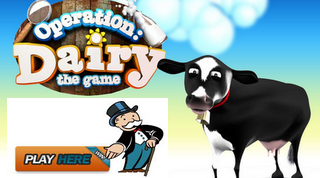How to prevent diseases for dairy cows
Natural Pesticide Protects Against Ticks In Africa

A solution may lie in the perennial plant, Lippia javanica, widely consumed to alleviate symptoms of fever is also used by some farmers to make a pesticide.
The University of Greenwich team in collaboration with the University of Zimbabwe, pulped and soaked the Lippia leaves in water to produce an extract which could be sprayed on cattle. Varying concentrations were tried to discover the best application method and the level of protection provided by the plant extract.
The research was led by Phil Stevenson, Professor of Plant Chemistry and Dr Steven Belmain, Ecologist, from the Agriculture, Health and Environment Department at the Natural Resources Institute (NRI).
Professor Phil Stevenson says: “When used at the correct dosage, Lippia javanica proved to be almost as effective as the industrial pesticides used for tick control.”
The shrub’s leaves can easily be harvested from abundant bushes in the wild and can also be easily grown from seed. Therefore, farmers need think only about the time it takes them to harvest and prepare the Lippia extract as opposed to buying expensive commercial synthetic products.
Further work is being carried out to refine the extraction of the active ingredients of the plant and optimise application on the lower parts of the animal where the ticks usually attach themselves.
The work is part of the EU funded African Dryland Alliance for Pesticidal Plant Technologies (ADAPPT) project led by NRI, together with partners including the Royal Botanic Gardens, Kew and non-governmental organisations, agricultural institutes, ministries and universities from eight African countries.
The project is carrying out research into the use of plants as environmentally benign and safer alternatives to synthetic pesticides. It is examining roots, leaves, seeds, and flowers requiring only basic preparation which farmers can use to reduce field crop damage, stored product losses and livestock illness or mortality.























